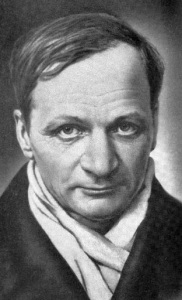
My first encounter with the work of Andrei Platonov was in 1996, through collaboration with Robert Chandler on translation of the stories. The more I studied Platonov’s fiction, the more I found myself trying (like many another reader) to account for his strangeness. As I once wrote in the ‘Independent’ (a piece headed ‘A writer ‘indescribable and without forebears’): ‘Nearly every sentence brings a shock – at once a sinking of the heart and an inexplicable élan… There is a strange insistence on the materiality of feeling (e.g. ‘he felt bored inside his body’); concrete and abstract are strangely conjoined (‘we’ll travel and exist together’; ‘the grass gave shelter, food and the meaning of life to whole gulfs of insects’); obvious things are estranged merely by being mentioned (‘he felt anguish in his heart, which was surrounded by hard and stony bones’; ‘the sun was there, like blindness…’). Within the strangeness of this writing there seemed to lie something both affirmative and tragic, something one could spend a lifetime exploring.
As investigations of Platonov’s style I would especially recommend Olga Meerson’s book Svobodnaia veshch’ (or, in English, my review of it) and Evgeny Iablokov’s ‘Na beregu neba’ (not reviewed by me); or else my articles ‘The Pit and the Tower‘ and ‘Danger and Deliverance‘.